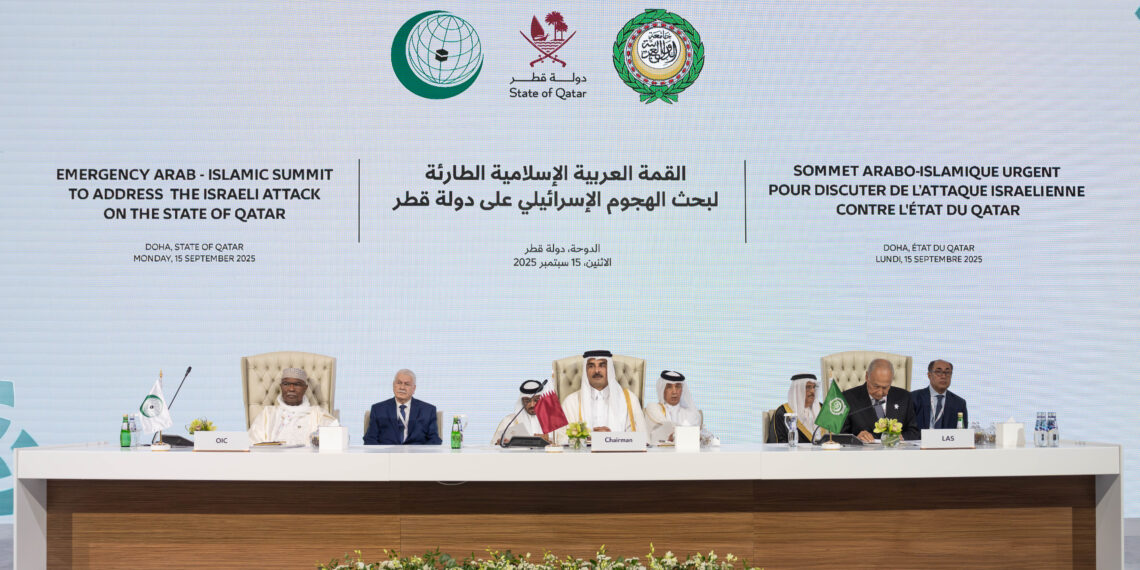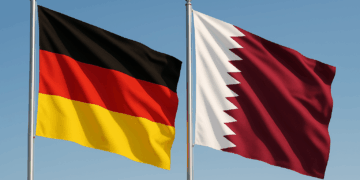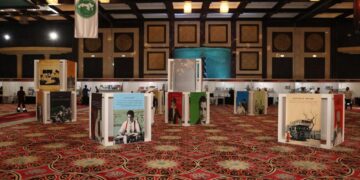The participating countries in the high-level international conference hosted by the United Nations in New York on “The Peaceful Settlement of the issue of Palestine and the Implementation of the Two-State Solution” agreed on a “roadmap” aimed at increasing recognition of the Palestinian state, exerting further diplomatic efforts to stop the war and humanitarian catastrophe in Gaza, and ending the Israeli occupation of Palestinian territories in the West Bank. The two-day conference was held under the auspices of the Kingdom of Saudi Arabia, represented by Foreign Minister Prince Faisal bin Farhan, and with the participation of France, represented by its Foreign Minister Jean-Noël Barrot.
The final document issued by the conference included a “roadmap” for working toward achieving “a just, lasting, and comprehensive peace between Palestinians and Israelis.” The final document affirmed “the continuing responsibility of the United Nations regarding the Palestinian issue” and the necessity of ending Israel’s occupation of the territories it seized in 1967. It also emphasized “respect for international law, including humanitarian law and human rights law,” and called for “measures to protect Palestinian civilians.” The document also called for “an immediate cessation of settlement activities, land confiscation, home demolitions, and all acts of violence and provocation.” In addition to calling for Israel’s withdrawal from the occupied territories, it demanded that Palestinians be granted their right to self-determination and statehood, and called for a “just solution” to the refugee issue. It also stipulated the need to take “irreversible” steps toward a two-state solution based on the pre-1967 borders, with East Jerusalem as a “shared capital.” It also highlighted support for Palestinian governance reforms, disarmament, and democratic elections. The document called for “coordinated humanitarian assistance and the reconstruction of Gaza,” while referring to the July 2024 Advisory Opinion of the International Court of Justice, which declared the Israeli occupation illegal.
The document was structured to include four main themes: recognition of Palestine, regional integration “in a manner linked to credible progress in the state-building process,” Palestinian governance reforms, and the humanitarian response. Call to “realize the conference’s gains” In statements to Asharq Al-Awsat, a source close to the French foreign minister said that the conference was held “at a critical moment when the two-state solution seemed more threatened than ever,” referring to the war in Gaza and the ongoing destruction and suffering it has caused among civilians. The source also pointed to the acceleration of settlement activity in the West Bank, the increase in violence by extremist settlers, and the growing number of those calling for not recognizing the two-state solution within Israel’s ruling coalition and for annexing the West Bank, a move approved by the Israeli Knesset a few days ago. He added, “What is required now goes beyond what was required at any time,” which has prompted Saudi Arabia, along with France, to “relaunch the political and diplomatic dynamic around the two-state solution.” He called for “strengthening this dynamic and helping to realize the conference’s gains.” He continued, “We now have a final document approved not only by France and Saudi Arabia, but also by the 27 co-chairs of the conference’s working groups, including some key Western and Arab partners.” He added, “This document will be proposed to any member state of the UN General Assembly for approval.” He described the declaration as “very important and unprecedented.” The French Foreign Minister published a post on the X platform, saying, “Today, the United Kingdom joined the dynamic initiative to explore the Palestinian state. Together, through this decisive decision and our combined efforts, we continue to work, during an ongoing cycle of violence, and address a new perspective on peace in the region.”
French Foreign Minister Jean-Noël Barrot announced that 15 countries had issued a collective call intending to recognize the State of Palestine. Barrot said via the X platform following the conclusion of the two-state solution conference, “In New York, along with 14 other countries, France is issuing a collective call: We express our determination to recognize the State of Palestine and call on those who have not yet done so to join us.”
Alongside France, Canada and Australia, members of the G20, joined this joint call. Other countries that signed the invitation are Andorra, Finland, Iceland, Ireland, Luxembourg, Malta, New Zealand, Norway, Portugal, San Marino, Slovenia, and Spain. Nine of these countries, which have not yet recognized the State of Palestine, have expressed their willingness or positive interest in recognizing it: Andorra, Australia, Canada, Finland, Luxembourg, Malta, New Zealand, Portugal, and San Marino.







